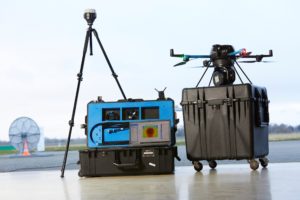QuadSAT wins $526K contract from ESA for drone testing of ground systems
Further development anticipated with ESA, strategic investors
Drone technology provider QuadSAT last week announced that it has been awarded a $526,000 (500,000 euros) contract for ready-to-fly antenna testing kits as part of the European Space Agency’s (ESA) $1.7 billion technology development program, known as ARTES Core Competitiveness.
The Denmark-based QuadSAT, which uses drones to test ground systems for the space industry, previously completed tests for constellation provider OneWeb and for ESA, pushing its development to a later stage than many companies receiving funds from the program, Joakim Espeland, chief executive at QuadSAT, told Connectivity Business News. ESA will provide 70% of the cost of development and the company will deliver the rest.
ESA’s ARTES Core Competitiveness program helps to develop satcom products, services and systems for European and Canadian industry, according to a release. Phase three of ESA’s program is performance testing, which complies with the Satellite Operator’s Minimum Antenna Performance (SOMAP) standard established by trade association GVF and five satellite operators: AsiaSat, Eutelsat, Inmarsat, Intelsat and SES (EPA: SESG).

The company in late 2021 published a document in collaboration with the ESA describing the differences between testing in a laboratory and testing in the field, which was published by the Institute of Electrical and Electronics Engineers.
Phase four of ARTES Core Competitiveness will focus on technology demonstration, Espeland said. It could be funded by ESA or “a satellite operator, an antenna manufacturer or a network operator,” he said. “I don’t want to go into details because that would be a little bit too early to speculate now.”
Founded in 2014, QuadSAT has raised $3.3 million in seed funding with investors including U.K.-based Seraphim Capital, according to Crunchbase.
The Connectivity Business Summit 2022 is a free webinar series addressing key issues in satellite technology and investment. View the agenda here. Register here to attend.









